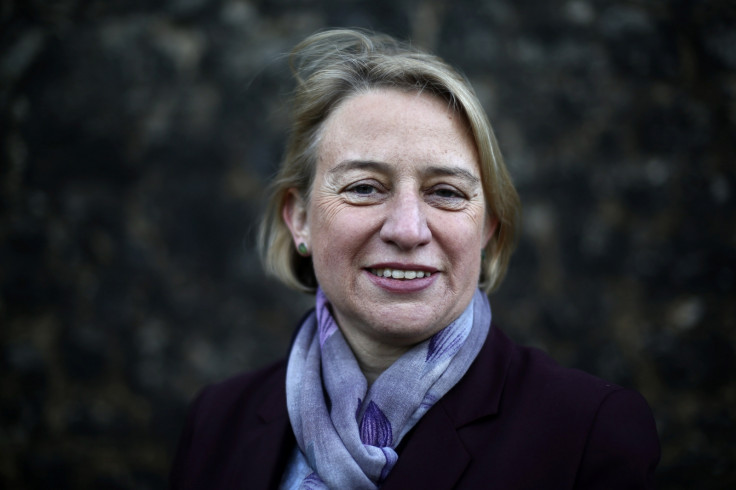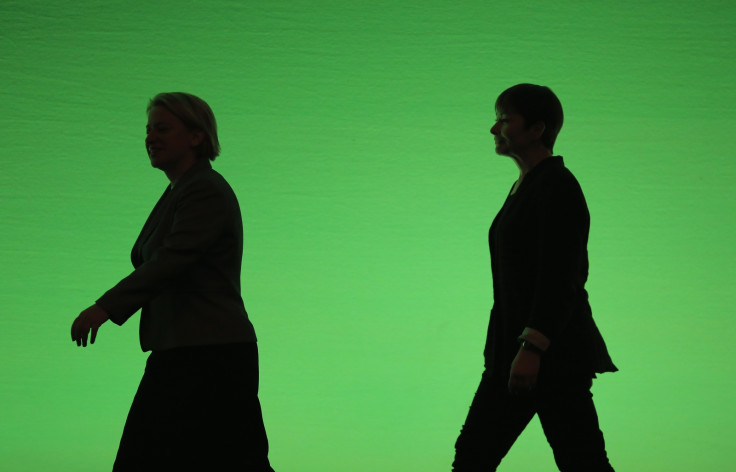What the Green Party's most successful leader did next
Natalie Bennett speaks to IBTimes UK about the 2017 general election and her move up north.

Natalie Bennett is the Green Party's most successful leader. It's a statement of fact – the party won a record 1.1m votes and 3.8% share of the popular vote at the 2015 general election – but Bennett is probably best known for her infamous "brain fade" moment during the campaign.
LBC Radio's inquisitor-in-chief, Nick Ferrari, caught her off guard over the Greens' housing policy, with Bennett claiming that 500,000 new council properties would cost £2.7bn. "What are they made of – plywood?" Ferrari quipped.
The excruciating interview dogged the Greens until polling day, around three months later on 7 May.
The next year, at the end of her two-year-term, Bennett decided not to stand for re-election. Caroline Lucas and Jonathan Bartley inherited the post in a job-sharing agreement.
Bennett, who left journalism in 2012 – having worked for The Guardian and The Times – to enter frontline politics, reemerged as the Greens' candidate in Sheffield Central, South Yorkshire, at the 2017 general election.
Her house sale in the Steel City went through in February after moving up from London and staying in other people's properties since last September. "I've just got my solar panels on the roof switched on today," she told IBTimes UK.
Bennett was pushed into third place by the Conservatives at the 8 June vote as Labour's Paul Blomfield romped to victory in the student-dominated constituency with more than 70% of the vote. But, despite the loss, Bennett is staying put.
"There's an enormous amount of energy in Sheffield, coming from the universities, coming from the thriving independent small business and social enterprise sector," she said.

'There are no jobs on a dead planet'
The former Green leader plans to concentrate her efforts on the north of England.
The "inglorious" grouse-shooting season, which kicks off in August, is a particular focus for Bennett. She also wants to take on the "deeply unhealthy" Labour "one-party-states" in the region. "There are some similarities between south London and the north," she said.
"You have some places that have been dominated by the Labour Party for a very long time. That tends to mean that you have right-wing Labour parties. People, who in other places, would be Tory councillors."
But with Jeremy Corbyn, a lifelong anti-nuclear activist, taking Labour to the left, can the Greens –who won just over 525,000 votes at the last election – pick out a place in the two-party political market?
"Of course, it was a very difficult election for us because, given the nature of the first-past-the-post system, and the fact that so many people were desperate to stop the Tories getting a large majority, the votes of the two largest parties grew," Bennett said.
"But If you look at what happened to many of the issues that we have been championing, the policies that we put forward in 2015 were adopted on a very large scale by the Labour Party. You can see it was huge success in that our political philosophy and policies were adopted on a far broader scale."
She also insisted that there is "clear blue water" between the Greens and Labour under Corbyn, pointing out that Labour's election manifesto backed the renewal of the Trident nuclear deterrent. "It's great that Labour have adopted our policy on opposing fracking, but people know we are the people who were always consistently opposed to that," Bennett added.
As for another leadership run, something Lucas has done, Bennett said it is something that she is not thinking about "at all". "I've got a huge number of issues and points to think about at the moment," she said.
"Were in time of very rapid political change and there's a real opportunity for something new. We have to live in the limits of this fragile planet – that's not politics, it's physics. There are no jobs on a dead planet."
© Copyright IBTimes 2025. All rights reserved.






















